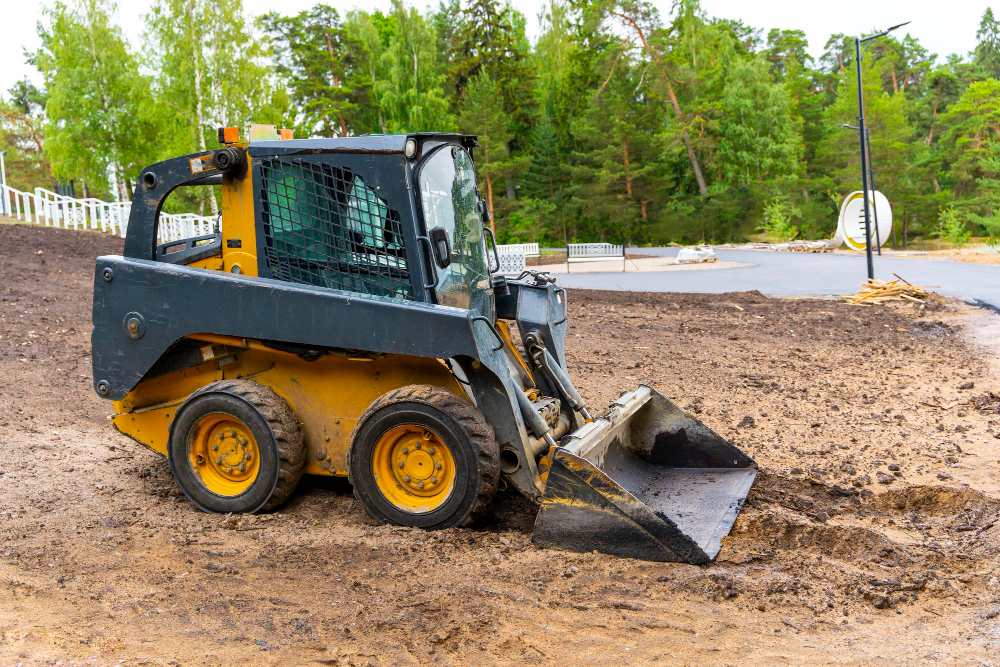
Tyre Care 101 – Extend the Life of Your Tyres
Tyres are among the most hardworking yet overlooked parts of any vehicle or machine. Whether it’s a tractor plowing fields, a truck hauling goods, or a loader working in a mine, tyres bear the weight, absorb the shocks, and ensure stability. Proper tyre care is not simply a matter of avoiding replacements; it is an investment in safety, performance, and cost savings.
Neglected tyres wear out faster, consume more fuel, and increase the risk of accidents. On the other hand, well-maintained tyres last longer, improve handling, and reduce operating costs. This blog provides a complete guide to tyre care, focusing on simple practices that extend tyre life and deliver maximum return on investment.
Why Tyre Care is Crucial
- Safety: Properly maintained tyres reduce risks of blowouts, skidding, and loss of control.
- Cost Efficiency: Longer tyre life means fewer replacements and lower maintenance costs.
- Fuel Savings: Well-inflated tyres with proper tread reduce rolling resistance, saving fuel.
- Machine Protection: Good tyres protect engines, axles, and suspension from extra stress.
For operators across agriculture, transport, and industry, tyres are not consumables — they are assets.
Common Mistakes That Damage Tyres
- Running Underinflated Tyres: This increases rolling resistance and fuel consumption.
- Overinflating Tyres: Leads to uneven wear and reduced grip.
- Ignoring Rotation: Causes some tyres to wear out faster than others.
- Overloading Vehicles: Exceeds tyre load ratings, leading to sidewall damage.
- Skipping Inspections: Small cuts and cracks often worsen when ignored.
- Exposing Tyres to Harsh Weather: Direct sunlight, waterlogging, or freezing temperatures degrade rubber compounds.
By avoiding these mistakes, tyre life can be significantly extended.
Best Practices for Tyre Care
1. Proper Inflation
Air pressure is the most critical factor in tyre care. Underinflated tyres overheat and wear unevenly, while overinflated tyres lose grip and wear in the center. Always:
- Check pressure weekly.
- Adjust for load and working conditions.
- Use manufacturer-recommended PSI.
2. Tyre Rotation
Rotating tyres ensures even tread wear. For commercial fleets, rotations should be scheduled after every 8,000–10,000 km. For tractors and industrial machines, rotation should follow workload hours (typically 400–500 hours).
3. Alignment and Balancing
Misaligned wheels cause uneven tread wear and increase fuel costs. Regular alignment checks ensure tyres wear evenly and machines run efficiently.
4. Load Discipline
Every tyre has a maximum load rating. Exceeding it leads to sidewall bulges, rapid wear, and sudden blowouts. Always respect tyre capacity.
5. Seasonal Adjustments
Tyres respond differently in summer, winter, and wet conditions. Adjusting air pressure and inspecting tread depth during seasonal changes improves performance and safety.
Tyre Care in Different Sectors
Agriculture
Farm tyres face challenges of soil compaction, mud, and heavy implements. Farmers should:
- Lower pressure for fieldwork to reduce compaction.
- Clean tyres after use to remove mud and chemicals.
- Store equipment in shade when idle.
Commercial Fleets
Trucks and buses run thousands of kilometers monthly. Fleet managers should:
- Check inflation before long hauls.
- Inspect tyres at rest stops.
- Replace tyres before tread depth falls below safety standards.
Industrial & Mining
Heavy machinery tyres encounter sharp rocks, high loads, and long working hours. Operators should:
- Inspect tyres at the start and end of each shift.
- Monitor heat build-up during continuous work.
- Train drivers to avoid wheel spin and sudden impacts.
The Economic Value of Tyre Care
- Fuel Efficiency: Proper inflation reduces unnecessary fuel burn.
- Reduced Replacements: Tyres last longer when rotated and maintained.
- Minimized Downtime: Fewer failures mean smoother operations.
- Extended Machinery Life: Well-maintained tyres reduce stress on vehicles.
In all sectors, from farming to logistics to mining, tyre care delivers a strong return on investment.
Frequently Asked Questions
Q1: How often should tyre pressure be checked?
At least once a week, and always before long trips or heavy workloads.
Q2: Is overloading tyres really dangerous?
Yes. Overloading causes heat build-up, weakens sidewalls, and can result in blowouts.
Q3: Should spare tyres be maintained the same way?
Absolutely. Spare tyres should be checked for inflation and condition regularly, not just when needed.
Q4: Do all tyres require rotation?
Yes. Whether tractor, truck, or loader, rotation balances wear and extends tyre life.
Q5: How can tyres be stored off-season?
In a cool, dry, and shaded environment, away from sunlight, oil, and chemicals.
Q6: What is the most cost-effective tyre care habit?
Maintaining correct inflation is the single most effective and simplest way to extend tyre life.
Why ATF Tyres + Care = Maximum Value
ATF tyres are designed with robust bias construction, thick sidewalls, and durable tread compounds. When combined with disciplined care practices, they deliver even greater value:
- More mileage.
- Fewer breakdowns.
- Safer operations.
- Lower overall cost per kilometer/hour of use.
Conclusion
Tyres are more than just rubber — they are essential tools for productivity, safety, and profitability. Proper care transforms tyres into long-term assets that protect machinery, reduce costs, and enhance efficiency.
With ATF tyres, engineered for toughness, and a consistent tyre care routine, farmers, fleet managers, and industrial operators can unlock maximum perfor
ATF Tyres — Built Strong. Maintained Right. Last Longer.
Tyres are among the most hardworking yet overlooked parts of any vehicle or machine. Whether it’s a tractor plowing fields, a truck hauling goods, or a loader working in a mine, tyres bear the weight, absorb the shocks, and ensure stability. Proper tyre care is not simply a matter of avoiding replacements; it is an investment in safety, performance, and cost savings.
Neglected tyres wear out faster, consume more fuel, and increase the risk of accidents. On the other hand, well-maintained tyres last longer, improve handling, and reduce operating costs. This blog provides a complete guide to tyre care, focusing on simple practices that extend tyre life and deliver maximum return on investment.
Why Tyre Care is Crucial
- Safety: Properly maintained tyres reduce risks of blowouts, skidding, and loss of control.
- Cost Efficiency: Longer tyre life means fewer replacements and lower maintenance costs.
- Fuel Savings: Well-inflated tyres with proper tread reduce rolling resistance, saving fuel.
- Machine Protection: Good tyres protect engines, axles, and suspension from extra stress.
For operators across agriculture, transport, and industry, tyres are not consumables — they are assets.
Common Mistakes That Damage Tyres
- Running Underinflated Tyres: This increases rolling resistance and fuel consumption.
- Overinflating Tyres: Leads to uneven wear and reduced grip.
- Ignoring Rotation: Causes some tyres to wear out faster than others.
- Overloading Vehicles: Exceeds tyre load ratings, leading to sidewall damage.
- Skipping Inspections: Small cuts and cracks often worsen when ignored.
- Exposing Tyres to Harsh Weather: Direct sunlight, waterlogging, or freezing temperatures degrade rubber compounds.
By avoiding these mistakes, tyre life can be significantly extended.
Best Practices for Tyre Care
1. Proper Inflation
Air pressure is the most critical factor in tyre care. Underinflated tyres overheat and wear unevenly, while overinflated tyres lose grip and wear in the center. Always:
- Check pressure weekly.
- Adjust for load and working conditions.
- Use manufacturer-recommended PSI.
2. Tyre Rotation
Rotating tyres ensures even tread wear. For commercial fleets, rotations should be scheduled after every 8,000–10,000 km. For tractors and industrial machines, rotation should follow workload hours (typically 400–500 hours).
3. Alignment and Balancing
Misaligned wheels cause uneven tread wear and increase fuel costs. Regular alignment checks ensure tyres wear evenly and machines run efficiently.
4. Load Discipline
Every tyre has a maximum load rating. Exceeding it leads to sidewall bulges, rapid wear, and sudden blowouts. Always respect tyre capacity.
5. Seasonal Adjustments
Tyres respond differently in summer, winter, and wet conditions. Adjusting air pressure and inspecting tread depth during seasonal changes improves performance and safety.
Tyre Care in Different Sectors
Agriculture
Farm tyres face challenges of soil compaction, mud, and heavy implements. Farmers should:
- Lower pressure for fieldwork to reduce compaction.
- Clean tyres after use to remove mud and chemicals.
- Store equipment in shade when idle.
Commercial Fleets
Trucks and buses run thousands of kilometers monthly. Fleet managers should:
- Check inflation before long hauls.
- Inspect tyres at rest stops.
- Replace tyres before tread depth falls below safety standards.
Industrial & Mining
Heavy machinery tyres encounter sharp rocks, high loads, and long working hours. Operators should:
- Inspect tyres at the start and end of each shift.
- Monitor heat build-up during continuous work.
- Train drivers to avoid wheel spin and sudden impacts.
The Economic Value of Tyre Care
- Fuel Efficiency: Proper inflation reduces unnecessary fuel burn.
- Reduced Replacements: Tyres last longer when rotated and maintained.
- Minimized Downtime: Fewer failures mean smoother operations.
- Extended Machinery Life: Well-maintained tyres reduce stress on vehicles.
In all sectors, from farming to logistics to mining, tyre care delivers a strong return on investment.
Frequently Asked Questions
Q1: How often should tyre pressure be checked?
At least once a week, and always before long trips or heavy workloads.
Q2: Is overloading tyres really dangerous?
Yes. Overloading causes heat build-up, weakens sidewalls, and can result in blowouts.
Q3: Should spare tyres be maintained the same way?
Absolutely. Spare tyres should be checked for inflation and condition regularly, not just when needed.
Q4: Do all tyres require rotation?
Yes. Whether tractor, truck, or loader, rotation balances wear and extends tyre life.
Q5: How can tyres be stored off-season?
In a cool, dry, and shaded environment, away from sunlight, oil, and chemicals.
Q6: What is the most cost-effective tyre care habit?
Maintaining correct inflation is the single most effective and simplest way to extend tyre life.
Why ATF Tyres + Care = Maximum Value
ATF tyres are designed with robust bias construction, thick sidewalls, and durable tread compounds. When combined with disciplined care practices, they deliver even greater value:
- More mileage.
- Fewer breakdowns.
- Safer operations.
- Lower overall cost per kilometer/hour of use.
Conclusion
Tyres are more than just rubber — they are essential tools for productivity, safety, and profitability. Proper care transforms tyres into long-term assets that protect machinery, reduce costs, and enhance efficiency.
With ATF tyres, engineered for toughness, and a consistent tyre care routine, farmers, fleet managers, and industrial operators can unlock maximum perfor
ATF Tyres — Built Strong. Maintained Right. Last Longer.






.svg)

